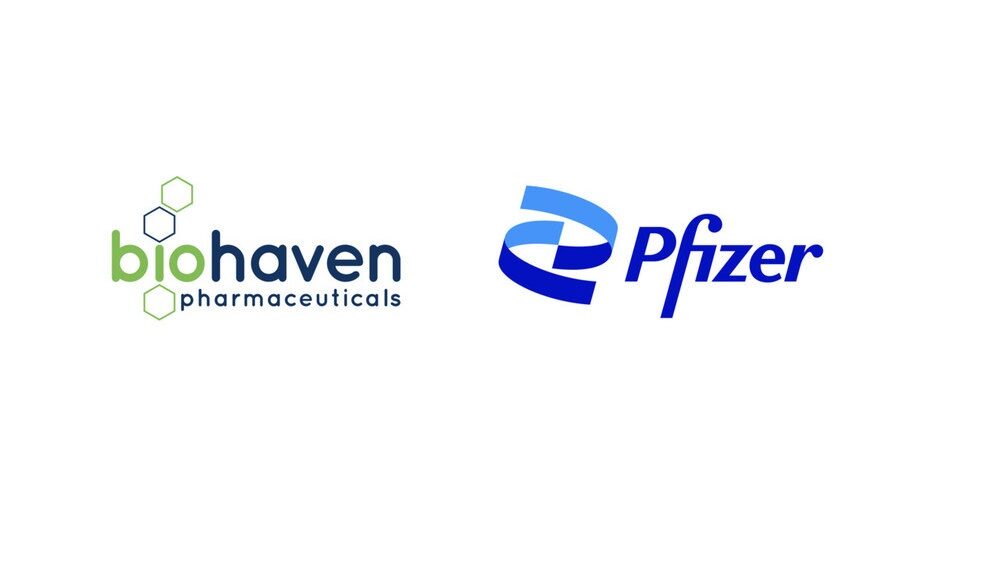Pfizer is putting its substantial gain from COVID-19 drugs to good use by making deals. The company has decided it wants more, six months after partnering with Biohaven Pharma on a migraine medication. The Big Pharma will invest $11.6 billion to acquire the remaining Biohaven shares, as well as the company’s CGRP inhibitor range. The deal’s real treasure will be the migraine medication, Nurtec ODT.
Aamir Malik, Pfizer’s chief business innovation officer, said the company expects Biohaven’s oral CGRP franchise to reach peak sales of more than $6 billion. Pfizer’s existing aim to add $25 billion in risk-adjusted earnings through business development by 2030 will benefit from this, he said.
The purchase comes after the companies signed a Nurtec commercialization agreement in November 2021. For Nurtec’s non-US rights, Pfizer pledged up to $1.24 billion in advance and milestone payments. In return for a $350 million investment, Pfizer received a 2.5% share in Biohaven.
Pfizer is now offering $148.5 per share for the remaining Biohaven shares, a 33% premium over Biohaven’s volume-weighted average sale price for the previous three months. Biohaven ended at $83.14 a share on May 9 and is currently trading at roughly $142.60. As part of the acquisition, Pfizer gains control of a sizable CGRP portfolio.
Biohaven said it lodged zavegepant as an intranasal spray for acute migraine therapy with the FDA in March, in addition to Nurtec and five preclinical CGRP candidates. Biohaven has dubbed the medicine the EpiPen of migraines because of its fast action, as per CEO Vlad Coric, M.D. The medicine is also being looked at as a soft cream that could be used to treat people who get migraines often.
Pfizer is not taking on all of Biohaven, though. The company’s non-CGRP projects will remain in New Haven, Connecticut. Pfizer is among Biohaven’s existing shareholders, which will get 0.5 of a new share for each of the company’s previous shares. Biohaven’s brand and CEO Coric, as well as other executives, will be retained by the new organisation.
The new Biohaven offers a glutamate portfolio that includes troriluzole, which is in phase 3 trials for OCD and spinocerebellar ataxia. It also has late-stage research on verdiperstat pills for amyotrophic lateral sclerosis. Following the purchase, the new Biohaven will be entitled to royalties connected to Nurtec and zavegepant sales exceeding $5.25 billion in the United States.
Pfizer is betting big on Nurtec at a moment when the oral CGRP migraine treatment is experiencing price pressure in the United States. Nurtec sales in the first quarter totaled $123.6 million, down 35% from the fourth quarter of 2021 notwithstanding an 8% sequential increase in scripts, according to Biohaven.
The drop was primarily driven by periodicity due to renewed patient budgets and medication reauthorizations as well as a patient support programme, according to Biohaven. Nurtec’s full-year revenue is expected to range between $825 million and $900 million, as per Biohaven. The range falls short of industry observers’ expectations.
Nurtec’s position is similar to that of AbbVie’s CGRP competitor, Ubrelvy, implying a class-wide issue. Ubrelvy generated $138 million in revenue in the first quarter, a 25% decline from the past quarter.
Angela Hwang, Pfizer’s biopharmaceuticals business leader, noted that the gross-to-net pressure was reviewed as part of the company’s due diligence.Pfizer is forced by Nurtec’s long-term promise to honour it, she said, despite the pricing scenario being common during the first few years of a drug’s introduction. According to Hwang, Pfizer will increase Nurtec’s sales force and use its core competencies to reach 70,000 more primary care doctors and OBGYNs, a sector that Biohaven has yet to penetrate. It also plans to double the size of its non-promotional field-based medical affairs staff, she said. In addition, Nurtec’s real-world evidence team will take advantage of the company’s global reach to better understand its impact on health services and real-world utilisation trends.
Pfizer hopes to raise the share of oral CGRPs in oral migraine medications from 5% in 2021 to over 40%. They think Pfizer is well placed to assist the range reach its potential due to its leading scale and capabilities, said Nick Lagunowich, head of Pfizer Internal Medicine.
Pfizer’s return to neuroscience following a contraction in 2018 is marked by the Biohaven transaction. Most of the New York pharma’s neurological R&D programmes were transferred to Cerevel Therapeutics at the time. Pfizer said it will fund the Biohaven deal with cash on hand and expects to close it in early 2023.
The acquisition follows Pfizer’s $6.7 billion purchase of Arena Pharmaceuticals to gain access to the latter’s S1P modulator for inflammatory disorders. Pfizer is also acquiring respiratory syncytial virus specialist ReViral for $525 million in a smaller deal announced last month.
Pfizer’s substantial cash pile from BioNTech-partnered COVID-19 vaccine Comirnaty and oral antiviral Paxlovid indicates that Biohaven won’t be its last M&A manoeuvre in the near future. Pfizer might have $175 billion in M&A ammunition by the end of 2022, according to SVB Securities analysts.
Pfizer just appointed former CVS chief financial officer David Denton as its CFO, fueling suspicion that the business is on the hunt for significant transactions. Denton oversaw CVS’ $69 billion purchase of Aetna.Pfizer’s Malik says that they absolutely have the cash and capabilities to explore the right larger opportunity. That said, they have been very clear that in the second part of the decade, they will focus on driving top-line growth instead of major transactions based on cost synergies.



















